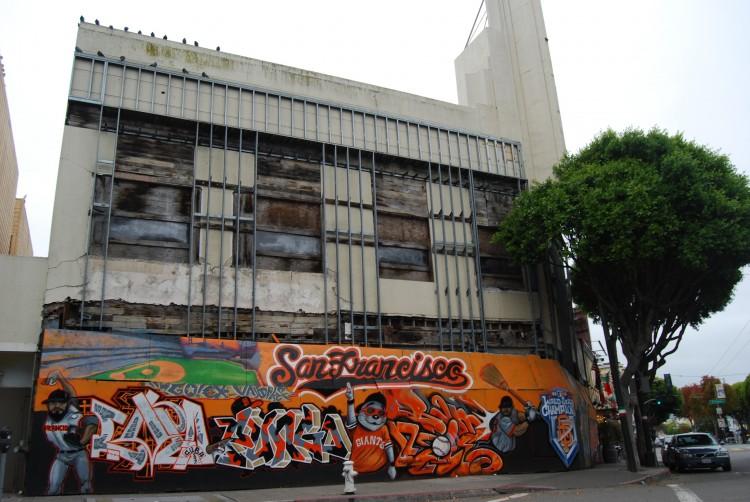SAN FRANCISCO—San Francisco’s Municipal Transportation Agency (SFMTA) is modifying part of its plan for the Central Subway Project that sparked opposition and lawsuits from North Beach residents. The original plan was to extract underground drilling equipment 2000 feet beyond the approved tunnel on Columbus Ave. between Filbert and Union Streets. Critics charged that that amounted to extending the subway without doing any environmental studies.
Now the city is considering alternative plans. One plan is to buy the nearby defunct Pogoda Theater and extract the drilling equipment there. That plan would still extend the tunnel, but it is more popular with local residents. The current theater location could serve as a future subway stop.
The Pagoda Theater, which opened as the Washington Square Theater in 1909, was purchased with hopes of redevelopment by Joel Campos in 2004. With talks of buying Pagoda Theater underway, the Central Subway project may have one less lawsuit to worry about.
“I’m completely in support of the subway,” said Marc Bruno of Save North Beach, the organization filing a lawsuit against the project. “As soon as we know there won’t be any construction on Columbus [Ave.], we can retract the lawsuit.”
Bruno is optimistic about the deal and has marked the deadline in his calendar. SFMTA program director John Funghi announced in a forum that he started discussions with the theater owner Sunday, and talks will continue through the week. The presentation of alternative construction plans to the SFMTA Board will take place on Feb. 5, 2013.
There is a dental office on one side of the theater and an Italian restaurant on the other.
“Those buildings will not be harmed, we will do everything to have them stay intact,” Funghi said.
Howard Wong from SaveMuni, the other group suing to stop the current project plan, says his concern is not just with the tourism traffic, but the projected change in demographic that could be brought on by the Central Subway.







